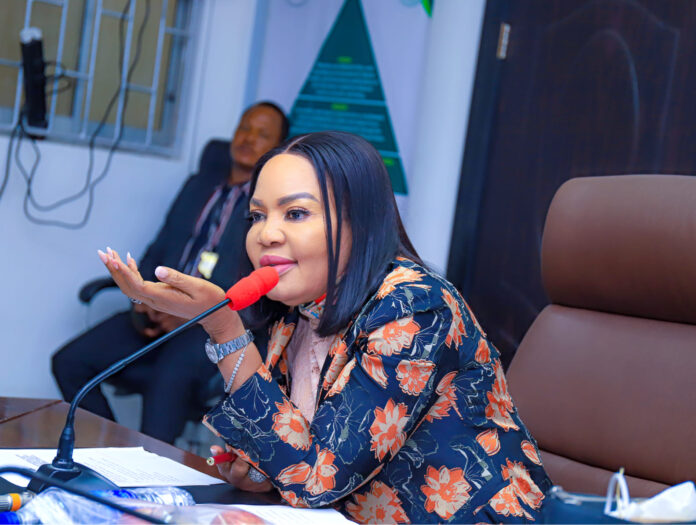The Nigerian government has called upon its citizens to join forces in the battle against child labor and forced labor, emphasizing that it is a collective responsibility for all Nigerians.
Nkeiruka Onyejeocha, the Minister of State for Labor and Employment, made this plea during the National Children Conference’s third edition, which took place in Abuja to commemorate the elimination of child labor and in conjunction with the 2024 World Day Against Child Labor, under the theme “Let’s act on our commitments to end child labor.”
Highlighting the global prevalence of child labor, Onyejeocha referred to current statistics that indicate approximately 160 million children, nearly one in ten worldwide, are engaged in some form of child labor.
She also noted that around 25 million adults and children are subjected to forced labor, including within global supply chains.
This global menace not only poses a risk to the development of children but also inflicts long-lasting physical and psychological harm, perpetuates poverty across generations, and keeps children out of school.

In her address, the minister humbly urged every individual to take personal responsibility in the fight against child labor and forced labor, emphasizing the importance of protecting the rights of all citizens.
Nigeria has already made significant progress in tackling the issue by ratifying various International Labor Organization (ILO) conventions, including Convention No. 138 on the minimum age for work and Convention No. 182 on the worst forms of child labor.
Furthermore, there is an ongoing review of the labor standard bill to incorporate provisions against child labor, with a particular focus on establishing 15 years as the minimum age for work and employment.
Concluding her speech, Onyejeocha assured the audience that the government is committed to putting an end to child labor. She pledged to use her position to engage with authorities at all levels to ensure that every Nigerian child has access to education and remains in school.
With nationwide collaboration and a steadfast commitment, the eradication of child labor and forced labor in Nigeria is not only possible but imperative for the future welfare and prosperity of the nation.




